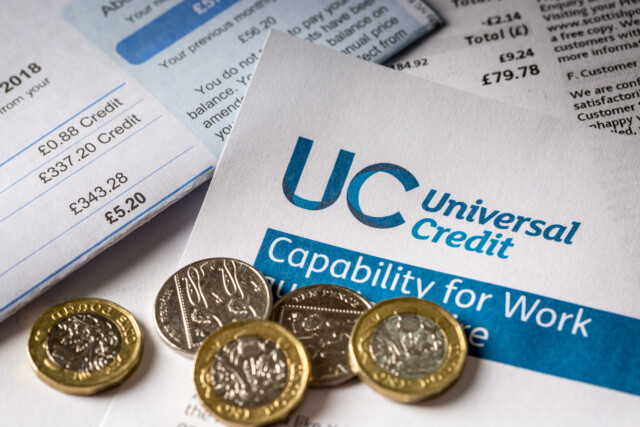HOUSEHOLDS receiving Universal Credit and in work could see their payments upped under government plans.
The taper rate for the benefit, impacting those receiving a work allowance, is under review and could be dropped to 50% from 55%.
A taper rate reduction would see some Universal Credit claimants receive more money
Plans are not yet confirmed by the government.
But it would mean that for every £1 a person who gets Universal Credit claims above their work allowance, payments would reduce by 50p instead of the current rate of 55p, the Telegraph reports.
It comes after the government slashed the rate from 63p to 55p last October.
The taper rate comes into effect once people are earning above their work allowance, which you get if you or your partner, are responsible for a child or have limited capability for work.
How much your work allowance is will depend on whether you claim the housing costs element of Universal Credit.
The monthly work allowance is set at £344 if your Universal Credit includes housing support, and £573 if it doesn’t.
The taper rate is applied to your Universal Credit payments automatically.
HOAR launched its Make Universal Credit work campaign in December 2018. A central aim was a call for a reduction in the taper rate.
What else did the government announce?
Chancellor Kwasi Kwarteng has already announced a raft of measures aimed at boosting the UK economy, which were:
Stamp duty cut
The government announcement a permanent stamp duty cut.
Stamp duty land tax (SDLT) is a lump sum payment you have to make if you are buying a property over a certain financial threshold.
The rate a buyer has to pay depends on the price, type of property and whether or not they already own a home.
Previously, first-time buyers did not have to pay tax on homes costing less than £300,000.
After the government’s announcement, that figure has now risen to £425,000.
Under the previous system, no stamp duty was paid on the first £125,000 of all property purchases, but the government has doubled that to £250,000.
The maximum value of a property on which first-time buyer’s relief can be claimed has also increased from £500,000 to £625,000.
National Insurance contributions cut
Millions of households will save £330 a year on average after the government announced a cut to National Insurance (NI) contributions.
A 1.25% increase to NI will be scrapped from November 6.
The Chancellor said the tax cut would impact 28 million people.
Bankers bonuses ditched
Mr Kwarteng axed the cap on bonuses for city bankers as part of the mini-budget.
The Chancellor claimed scrapping the cap would give the British economy a much-needed boost.
A limit on bankers’ bonuses was introduced by the EU following the 2007-2008 financial crash.
Before the change, bankers could only earn less than 200% of their salary as an added bonus, but now that limit has been ditched.
Income tax
Those on the basic rate threshold of income tax – between £12,571 and £50,270 – will get a 1p cut from next April.
It estimated around 31 million people will be impacted by the change, with the average worker saving £170 a year.
Martin Lewis said the announcement was good news for middle earners.
The Chancellor also announced:
- Beer price rise cancelled
- Boost for self employed as complex tax rules axed
- Low-tax investment zones for business
- Corporation tax hike scrapped








